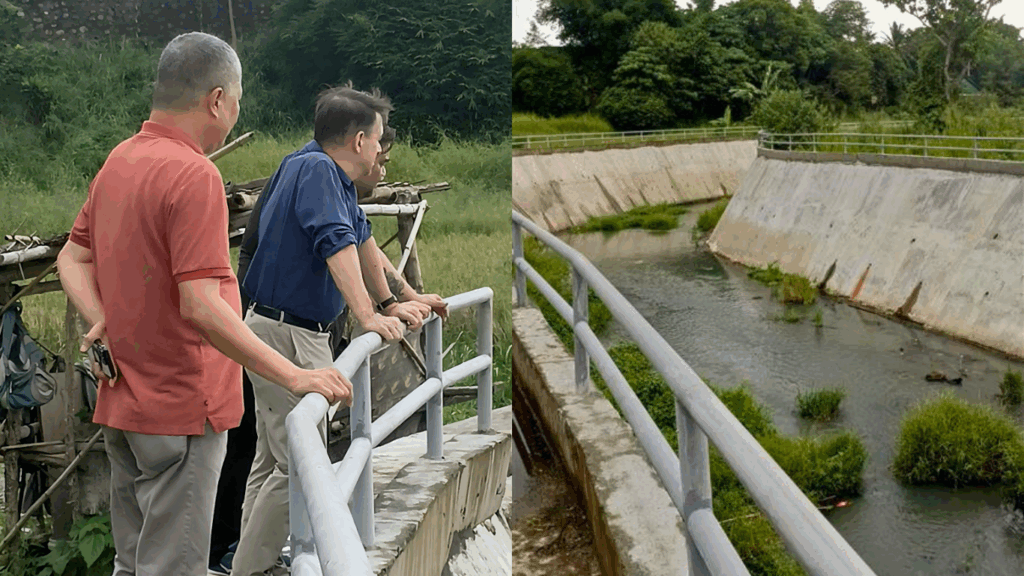Building Resilience Where It Matters: AIM Brings Disaster Leadership Programs to Bicol
Naga City and Legazpi, Philippines — In a region that has endured decades of volcanic activity, typhoons, and flooding, the call for deeper local leadership in disaster resilience continues to grow louder. Last July, the Asian Institute of Management (AIM) concluded a three-day roadshow across Legazpi and Naga in the Bicol region, reconnecting with key leaders, alumni, and institutions while showcasing the enhanced offerings of its Executive Master in Disaster Risk and Crisis Management (EMDRCM) and Master in Development Management (MDM) programs.
Long regarded as one of the most disaster-prone regions in the Philippines, Bicol provided the ideal setting to introduce the enhanced curriculum of the Executive Master in Disaster Risk and Crisis Management (EMDRCM). The redesigned program now features three future-oriented electives—Disaster and Conflict Medicine Management, Resilient Supply Chain and Operations Management, and Collaborative Disaster Risk Governance. These additions respond to the growing need for leaders who can strengthen health systems in emergencies, safeguard supply chains during disruptions, and coordinate multi-level disaster governance. Throughout the roadshow, AIM underscored the importance of formal crisis leadership education that is not only nationally relevant but also deeply attuned to the realities of high-risk provinces such as Albay and Camarines Sur.
The roadshow began in Legazpi City, where AIM met with the Albay Chamber of Commerce and Industry Foundation Inc. (ACCIFI) at Hotel Sentro Legazpi. The conversation centered on workforce resilience and the urgent need to equip MSMEs with stronger crisis management capabilities. Local business leaders and AIM alumni reflected on their region’s long history of disaster exposure and expressed interest in collaborating with the Institute for executive education, training, and potential development initiatives that could benefit local industries and civil society alike.

From Legazpi, the AIM team proceeded to Naga City for a courtesy call with Mayor Leni Robredo. The visit marked a meaningful dialogue about strengthening the city’s disaster risk reduction and climate resilience agenda. Mayor Robredo shared her intent to send members of the City Disaster Risk Reduction and Management Council (CDRRMC) to formally enroll in the Institute’s crisis leadership program. She highlighted the importance of building in-house expertise as trained professionals within City Hall who could lead long-term planning, improve local protocols, and implement systems that move beyond reactive emergency responses.

Later that day, the AIM delegation joined Renne Gumba, a current EMDRCM student and Executive Director of the Naga City Public Safety Office, for a field visit to one of the city’s identified hazard mapping areas in Barangay Cararayan. The site visit illustrated how real-world challenges such as flooding, erosion, and unplanned settlements require technically sound and community-rooted solutions. The presence of faculty members Prof. Chad Michael Briggs and Jason Keith Boñaga reinforced the Institute’s hands-on approach to applied learning and contextual program delivery.

The roadshow culminated with a public forum at Naga College Foundation titled “Beacons of Leadership Amidst Disaster and Crisis.” The event brought together more than 80 professionals from various sectors including public safety, health, education, agriculture, civil service, and private enterprises.
AIM faculty and alumni led conversations on how disaster leadership today must go beyond preparedness—it must include systems thinking, climate adaptation, and inclusive crisis response planning. Prof. Chad Briggs delivered a masterclass on early warning systems and regional risk management, emphasizing how crisis leadership requires both technical foresight and policy integration. The audience also heard firsthand from alumni and current students who are actively applying the EMDRCM and MDM frameworks within their organizations and local governments. Among the speakers were Chief Resilience Officer of the Naga City Resilience Council Renne Gumba, EMDRCM 2026 candidate; AIM Adjunct Faculty Jason Keith Boñaga, EMDRCM 2020 and MBA 2022; Dean of the College of Arts and Sciences at Naga College Foundation, Dr. Fausto Romero, EnP, EMDRCM 2020; and Chief Operating Officer of CreedoGroup, Inc. Mylce Competente, MDM 2023 .
Their stories highlighted how AIM programs have empowered them to lead with clarity amid intersecting challenges in governance, climate, and development. The event also featured an on-site application booth for the EMDRCM September 2025 intake, enabling interested participants to begin their leadership journey.
Across all three days, one message resonated clearly: disaster-prone communities must invest in cultivating homegrown crisis leaders. The roadshow reaffirmed AIM’s belief that research-informed, locally anchored education is critical to building systems that not only withstand disaster—but shape what comes after.

In the months ahead, AIM will continue to support professionals in the Bicol region through application assistance, online information sessions, and deeper collaboration with local chambers, public offices, and alumni. The Institute remains committed to bringing high-impact education to the frontlines of resilience—ensuring that communities do not have to leave their regions behind to lead change.
To learn more about the EMDRCM and MDM programs, visit aim.edu/masters-degree-program or reach out to studentrecruitment@aim.edu.

